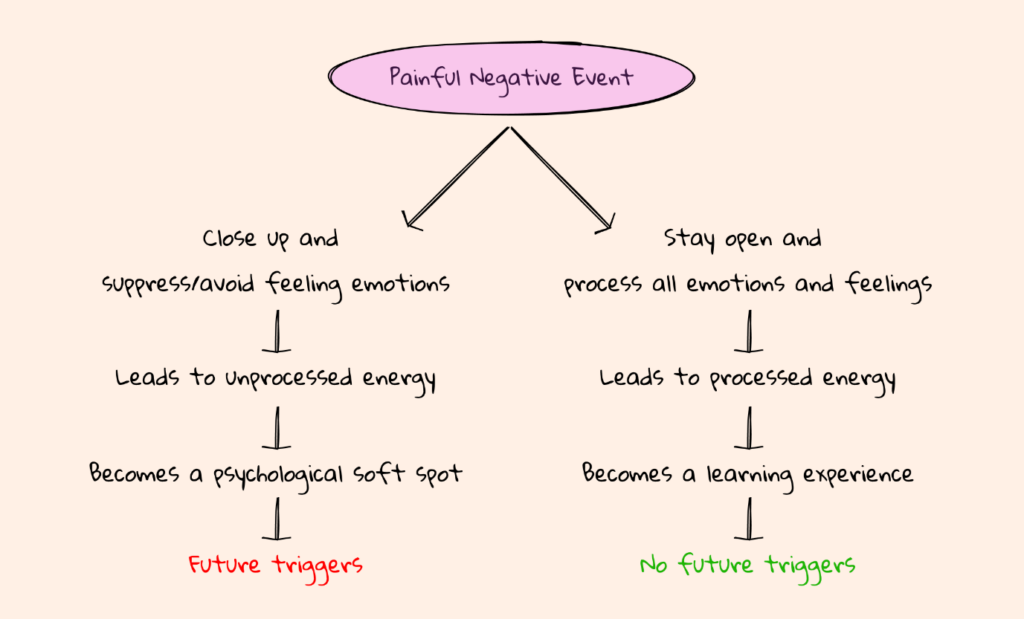CONTROLLING ONE'S DISRUPTIVE EMOTIONS
Every living being experiences feelings through physical and psychological perceptions. In its simplicity, psychological feelings are referred to as emotions. Functionally, there are two fundamental emotions – love and fear. And each of these two emotions has its several derivative emotions. Further, every emotion finds its expression in varying degrees from extremely insignificant to the most intensive. The upshot of all these is that we find several adjectives for defining one’s temperament depending on one’s behavioural pattern in which one exhibit one’s traits.

Benefits of Controlling one’s Disruptive Emotions
Let us learn how to control our disruptive impulses:
- Controlling impulses promptly when one is different from them
Obviously, we can control a thing when it is different from us. Let us take an example. There is stale food on our dining table and we have the control with us to throw it in a dustbin as that food is different from us. But once we have eaten it and it became part of our body, we cannot exercise that control of throwing it in the dustbin. It implies that we can control things when we are different from them; but if we are one with them, there is no scope for control.
- Bringing contrary thoughts into play
In order to get rid of the unwanted thoughts its contrary thoughts should be brought in. Let’s take an example of how anger can be avoided by bringing the feeling of love into our minds. There is a mother who is very angry with her husband, and while in that state, the baby comes in, and she kisses the baby; the old wave dies out and a new wave arises, love for the child. That suppresses the other one.
- Staying away from provoking situations
We all know the proverb ‘prevention is better than cure’. It finds its application in controlling one’s disruptive emotions too. One can easily identify situations that throw one into an undignified rage and irritation. One should desist from such situations or prevent such situations happening. Let’s look as to how we can apply this in our day to day lives. The most common cause of making one upset and losing balance is getting delayed be it- attending a party or an important meeting, catching a flight or train so on. Caught up in such situations of disgust and frustration, one is prone to unintentionally use sharp and biting words while interacting with others, either on the phone or face to face. Such nasty situations can be easily avoided if one starts thirty minutes earlier. And as a result, we do not get trapped into unnecessary provocation.
- Combining the brain and heart
It is often said that emotions are the function of the heart and its counterpart, i.e. Intellect is the function of the brain. Thus, heart and emotions are paired together and intellect with the brain. The process of combining emotions and intelligence was later formulated in the field of management under the title of “Emotional Intelligence”.

- Breathing & Meditation Techniques
Disruptive emotions flare up in one’s mind as one enters an agitated state during stressful circumstances. When one’s mind is calm and composed, no disruptive emotion stirs up in one’s mind. Thus, it goes without saying that techniques that keep oneself in calm and composed state effectively mitigate the problem of disruptive emotions. It also goes without saying that there is no technique like meditation that can make one’s mind calm.
- Transmuting the negative emotions instead of suppressing them
One should not forcibly suppress one’s emotions. Such suppressed emotions boil within and cause much mental agony, besides spoiling health by causing hypertension, high blood pressure etc. These symptoms are mostly seen in the affected persons who have tasted a little wrath of others, but unable to do a ‘tit-for-tat’, for example, due to their inferior positions in an organization. Transmutation involves understanding of disruptive impulses and using them as a positive means for one’s benefit.

Conclusion
In conclusion, controlling disruptive emotions is a critical skill for maintaining personal well-being, fostering healthy relationships, and achieving success in various phases of life. Emotions are the fundamental tools in our day to day lives as long as we use them in the right way, at the right place, for a right purpose. By developing emotional intelligence, practicing mindfulness, and employing strategies like deep breathing or cognitive reframing, we can gain greater control over our emotional responses. This not only enhances our ability to navigate challenges but also promotes a more peaceful and productive life, ultimately leading to better decision-making, stronger connections, and a deeper sense of inner peace.
By – Sweety Swaroopa